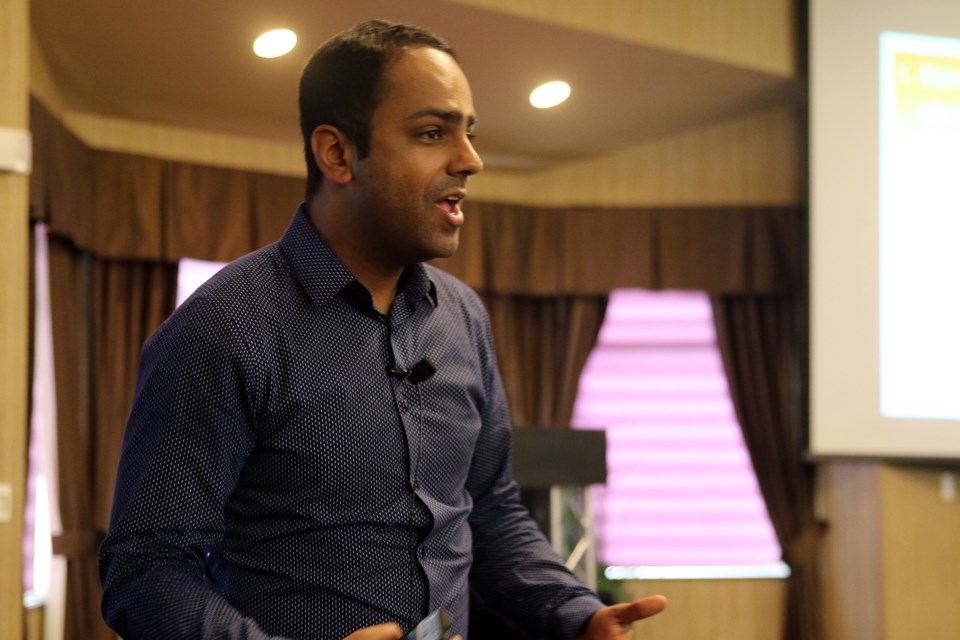THUNDER BAY - “How do we value dignity at the end of life? Is it the same for everyone?”
These were the questions Dr. Naheed Dosani asked himself after one of his patients overdosed when working as a medical trainee in Toronto.
The tragic incident sparked Dosani to form a street- and shelter-based care program designed to meet the medical needs of the vulnerably housed.
On Friday, Dosani spoke to a group at the Victoria Inn about his program and how it could be implemented in the local community.
“We see that various centres in Canada are coming to terms with how we’re going to address this issue,” Dosani said. “I think it’s a national conversation and we’re even having it on the international scale as well.”
The conversation Dosani is having asks how to provide palliative care for people who are ill and homeless. Dosani wants to break down the barriers that marginalize care for those of a lower class.
“We’ve come to learn that the homeless population dies much sooner… They die at a rate that is 2.3-to-4 times higher than the Canadian baseline population.”
Throughout his time in the medical field, Dosani saw a need to address the social issues of homeless people, and the stigmas that surround them.
“There’s a lot of people that think they do it to themselves, or they’re lazy,” Dosani said. “But the evidence and research does not show that. People are homeless and vulnerably housed due to a variety of factors that tend to be social.”
Ann Magiskan was on hand to hear Dr. Dosani’s presentation, and said that she has dealt with these stigmas first hand.
“Having witnessed and lost family members to homelessness and addictions, it’s certainly something I’m very interested in,” said the Aboriginal liaison for the city of Thunder Bay. “I’m looking for the root causes of a lot of these issues so ingrained in our community today.”
Magiskan believes the first step in helping these members of the community, is to break down the stigmas and barriers.
“We need to let go of those stereotypes, biases, and ideologies, and focus on each of us as a human being.”
Dr. Dosani echoes that exact sentiment in his work.
“The number one determinant of health is social factors,” Dosani said. “We need to break down those barriers and realize there are other reasons why people are homeless.”
